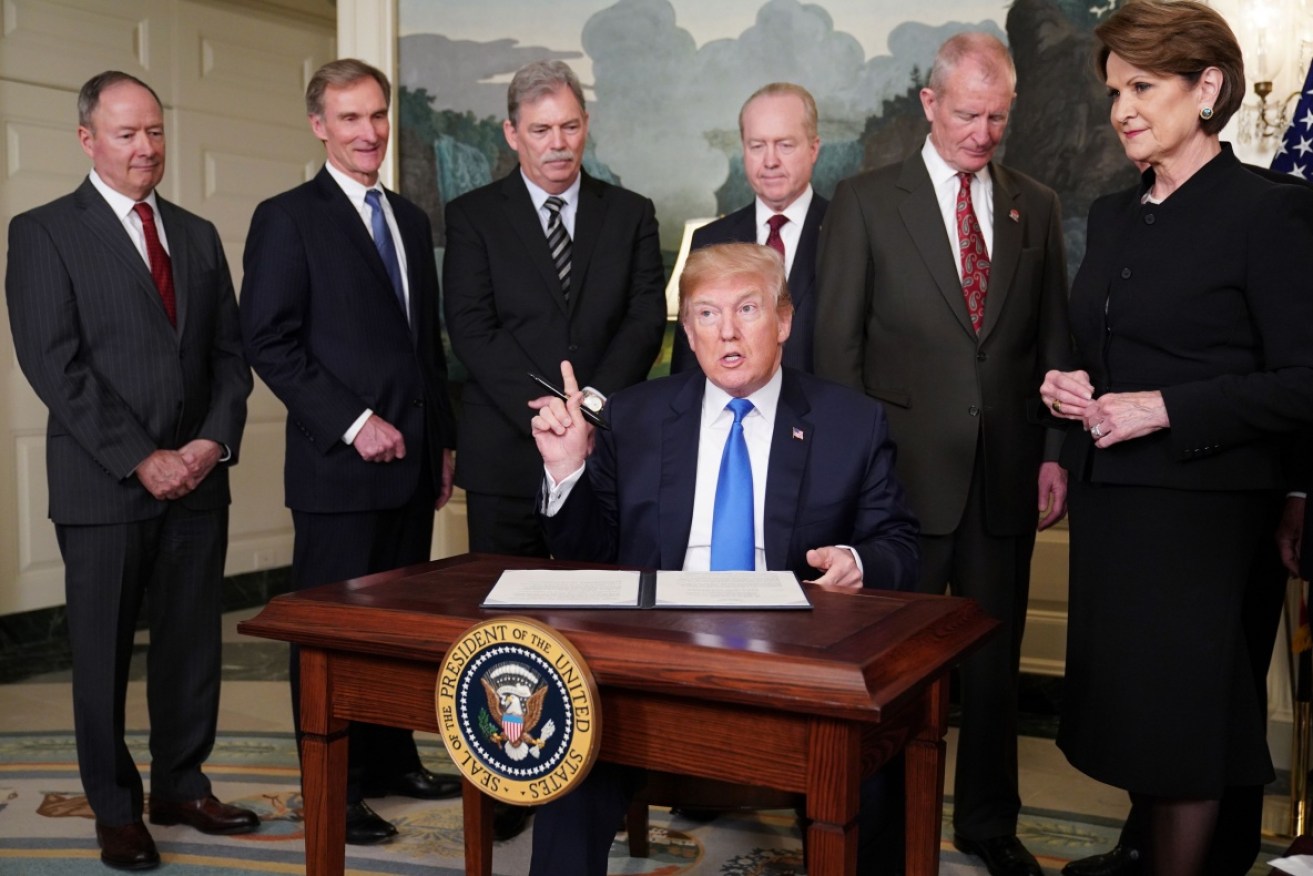Trump administration levies more trade tariffs on China

Donald Trump has imposed new trade tariffs on China. Photo: Getty
The Trump administration has escalated its aggressive approach to trade by proposing 25 per cent tariffs on $US50 billion ($65.2 billion) in Chinese imports to protest Beijing’s alleged theft of American technology.
The Office of the US Trade Representative issued a list targeting 1300 Chinese products, including industrial robots and telecommunications equipment.
The suggested tariffs wouldn’t take effect right way: A public comment period ends May 11, and a hearing on the tariffs is scheduled for May 15. Companies and consumers will have the opportunity to lobby to have some products taken off the list or have others added.
The move risks heightening trade tensions with China, which on Monday slapped taxes on $US3 billion in US products in response to earlier US tariffs on steel and aluminum imports.
On Tuesday night, the Chinese embassy in Washington issued a statement saying it “strongly condemns” the move: “It serves neither China’s interest, nor the US interest, even less the interest of the global economy.”
China is likely to retaliate against the new tariffs, which target the technology and advanced manufacturing industries that Beijing is nurturing. The sanctions are designed to punish China for using strong-arm tactics in its drive to become a global technology power.
These include pressuring American companies to share technology in exchange for access to the Chinese market, forcing US firms to license their technology in China on unfavourable terms and even hacking into US companies’ computers to steal trade secrets.
The administration sought to draw up the list in a way that limits the impact of the tariffs – a tax on imports – on American consumers while hitting Chinese imports that benefit from Beijing’s sharp-elbowed tech policies. But some critics say that American will end up being hurt.
Even representatives of the US tech industry, which has complained for years that China has pilfered US technology and discriminated against US companies, were critical of the administration’s latest action.
“Unilateral tariffs may do more harm than good and do little to address the problems in China’s (intellectual property) and tech transfer policies,” said John Frisbie, president of the US-China Business Council.
And the Internet Association, which represents such companies such as Google, Facebook and Amazon, expressed concerns, too.
“There’s no doubt the US government can and should address China’s trade practices,” Melika Carroll, the association’s senior vice president of global government affairs.
“But consumers and American job creators should not be caught in the crossfire … These tariffs will leave our customers worse off, stifle growth and make it harder for the digital economy to succeed.”
China has been urging the US to seek a diplomatic solution and warning that it would retaliate against any trade sanctions.
Beijing could counterpunch by targeting American businesses with a big exposure to the Chinese market: Aircraft manufacturer Boeing, for instance, or American soybean farmers who send nearly 60 per cent of their exports to China.








